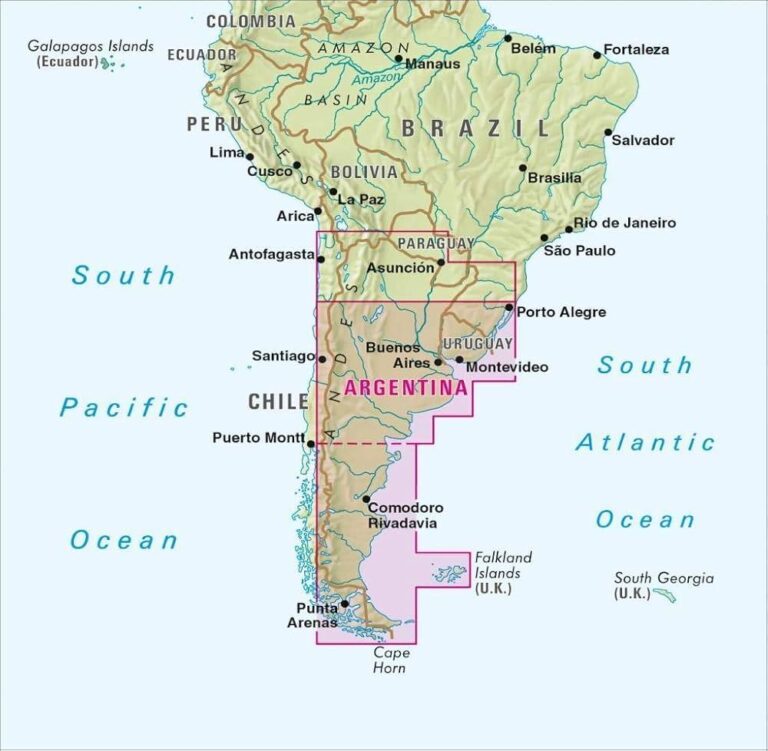In a significant move spotlighting global human rights concerns, Argentina has taken steps to hold China accountable for alleged atrocities against Uyghurs in the Xinjiang region. The South American nation’s initiative marks a rare challenge to Beijing’s narrative on the issue, underscoring growing international pressure surrounding the treatment of the Uyghur Muslim minority. This development, detailed in a recent Just Security report, highlights the expanding efforts beyond Western capitals to address one of the most contentious human rights crises of the decade.
Argentina’s Legal Action Targets Chinese Officials Over Uyghur Human Rights Violations
Argentina has taken a groundbreaking legal initiative by filing complaints against several Chinese officials implicated in alleged human rights violations against the Uyghur population. This unprecedented move marks a rare example of Latin American judicial systems stepping into the global human rights debate, challenging powerful state actors for their role in oppressive policies. The cases filed demand accountability for forced labor, mass detentions, and cultural erasures, amplifying international concerns surrounding China’s actions in Xinjiang.
Legal experts highlight that Argentina’s action relies on the principle of universal jurisdiction, which allows national courts to prosecute serious crimes against humanity regardless of where they occur. This effort is supported by various human rights organizations, who emphasize several key points:
- Scope of Allegations: Targeting top Chinese officials directly responsible for policy implementation
- Potential Impact: Setting a precedent for other countries in Latin America and beyond
- International Law: Utilizing global frameworks to transcend diplomatic boundaries
| Legal Element | Details |
|---|---|
| Jurisdiction Basis | Universal jurisdiction invoked by Argentine courts |
| Defendants | Chinese officials accused of human rights abuses |
| Key Allegations | Forced labor, mass detentions, cultural suppression |
| Supporting Bodies | Global human rights NGOs and legal experts |
International Response and Implications for Global Human Rights Accountability
Argentina’s move to pursue legal accountability for China’s alleged role in the Uyghur atrocities marks a significant moment in the landscape of international human rights enforcement. This unprecedented step underscores a growing global willingness to circumvent traditional power dynamics that often shield influential states from scrutiny. By leveraging principles of universal jurisdiction, Argentina sends a powerful message that crimes against humanity-no matter where committed-can face legal reckoning beyond geopolitical boundaries. The action also reflects an evolving network of civil society organizations and legal advocates championing victims’ rights through transnational alliances.
The ramifications of Argentina’s case ripple through multiple dimensions:
- Challenges to state sovereignty arguments in human rights litigation
- Incentives for other nations to embrace extraterritorial justice mechanisms
- Potential strain on diplomatic relations amid mounting international pressure
- Empowerment of marginalized communities through global legal recognition
| Aspect | Potential Impact |
|---|---|
| Diplomatic Relations | Heightened Tensions |
| Legal Precedent | Expanded Universal Jurisdiction |
| Human Rights Advocacy | Increased Global Collaboration |
| Victim Recognition | Improved Visibility & Justice |
By setting a precedent, Argentina catalyzes a broader international conversation around accountability, potentially inspiring similar actions that chip away at impunity. The global human rights framework stands at a crossroads where international norms could be strengthened or diluted, dependent on collective responses to this legal challenge. This moment highlights the urgent need for multilateral institutions and governments to enhance cooperation, ensuring that perpetrators of gross violations find no safe harbor anywhere on the planet.
Recommendations for Strengthening Multilateral Mechanisms to Address State-Sponsored Atrocities
To effectively confront state-sponsored atrocities such as those committed against the Uyghur population, multilateral institutions must enhance transparency and accountability mechanisms. Strengthening investigative bodies with impartial mandates and securing their operational independence are essential steps. Moreover, fostering greater cooperation between states, civil society, and international organizations can create a robust network for intelligence sharing and timely interventions. This will ensure that evidence is gathered swiftly and that responsible parties are identified without political interference.
Equally critical is the establishment of legal frameworks that empower courts to pursue jurisdiction over gross human rights violations beyond national borders. An international registry, similar to the table below, could track ongoing investigations and sanctions related to state-sponsored abuses, increasing public scrutiny and encouraging compliance:
| Mechanism | Status | Impact |
|---|---|---|
| Independent Investigative Commissions | Underutilized | Moderate |
| Cross-Border Legal Jurisdictions | In Development | High |
| Multilateral Evidence Sharing Platforms | Emerging | Growing |
Wrapping Up
As Argentina takes these unprecedented measures to address the allegations of human rights abuses against Uyghurs, the move signals a growing international willingness to hold China accountable for its actions. While the path forward remains complex and fraught with geopolitical tensions, Argentina’s step may inspire other nations to reconsider their approach to the issue, potentially reshaping the global conversation on human rights and state responsibility. The unfolding developments will be closely watched by governments, activists, and observers alike, as the quest for justice in Xinjiang continues to provoke a critical dialogue on accountability and international law.




